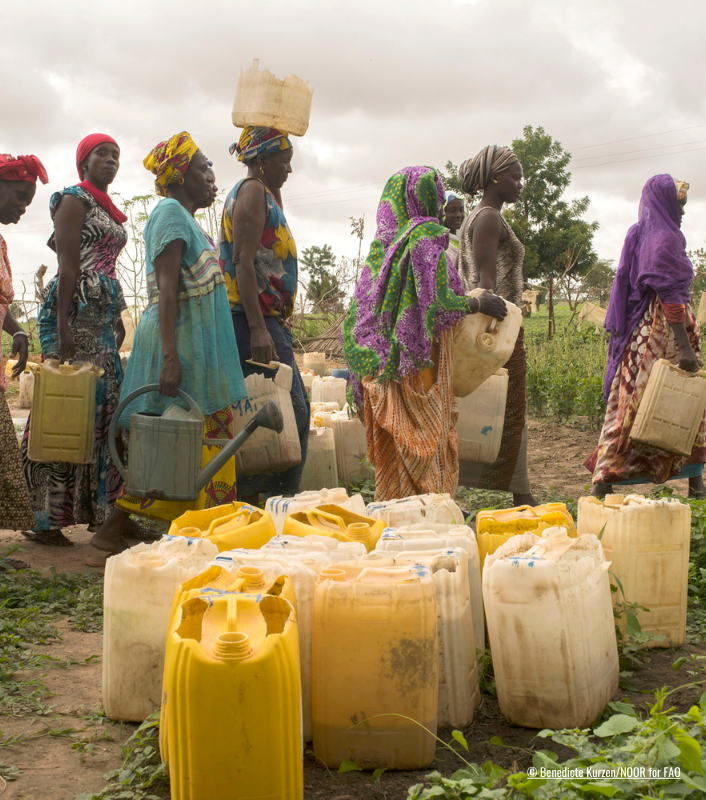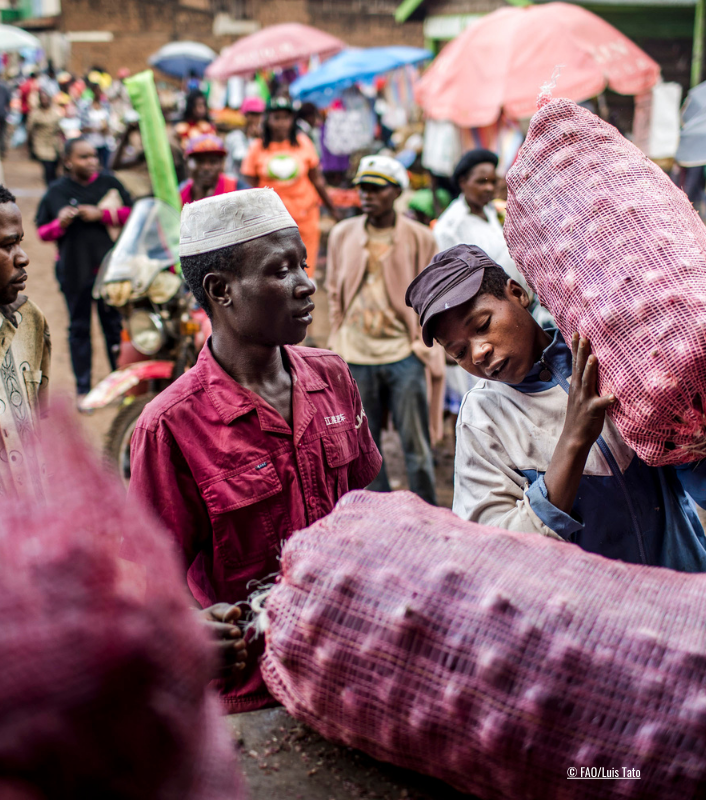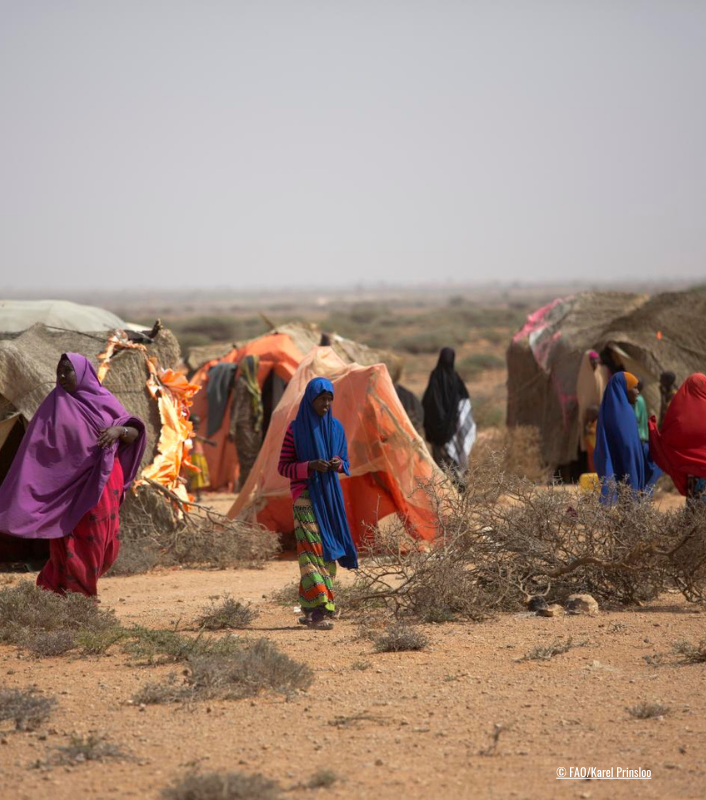COUNTRY ASSISTANCE
Build resilience to vulnerabilities, shocks and stresses
Climate Resilient Food Systems Alliance (CRFS Alliance)
Type of Assistance
- In-country technical support missions for pathways development, operationalization or implementation (system-wide or thematic). Expert assistance: deploy or assign expert to country remotely or physical or maintain roster of experts and thought Leaders
- Mobilize resources including developing investment cases for financial assistance to pathways implementation
- Analytics: assessments, analysis, data collection, evidence generation and monitoring, solution scanning and modeling. Monitoring and Evaluation support: identifying meaningful progress indicators, developing results frameworks and M&E plans
Coverage: Global with priority focus on Least Developed Countries, Small Island Developing States and Arid and Semi-Arid Lands.
Summary of Assistance:
The Climate Resilient Food Systems Alliance takes a demand driven approach for creating a portfolio of solutions for countries. The alliance aims to support countries in transforming towards climate resilient food systems by promoting implementation of actions into national strategies, policies and plans such as National Determined Contributions (NDCs), National Adaptation Plans (NAPs), national food strategies and plans, etc.; facilitating access to finance, technology and innovation; promoting multi-risk management approaches; and promoting gender and social inclusion and participatory, deliberative, approaches to address power differences among actors.
Data and analytics: The alliance aims to facilitate access to climate and food systems related data and analytics, by promoting coordination and shared efforts to improve access to data, analytics and metrics, and sharing relevant knowledge and case studies.
Partnerships, outreach and advocacy: The alliance has a strong outreach and partnering component as it focuses on facilitating linkages with other alliances, SDG processes, and partnerships, to coordinate efforts, leverage expertise and promote synergies.
Country case studies: The alliance has developed case studies to allow proactive engagement of selected countries while also providing opportunities for the Alliance to gather lessons, challenges, opportunities and good practice in providing and coordinating the support.
Focal Point and Contact: Julia Weatherhogg, [email protected]


Resilient Local Food Supply Chain Alliance (RLFSCA)
Type of Assistance
- In-country technical support missions for pathways development, operationalization or implementation (system-wide or thematic). Expert assistance: deploy or assign expert to country remotely or physical or maintain roster of experts and thought Leaders
- Mobilize resources including developing investment cases for financial assistance to pathways implementation
- Capacity strengthening support for a contextualized “food systems approach” and tailored training programmes for country level
Coverage: Members of the African Union
Summary of Assistance:
The alliance supports advocacy for resilient local food supply chains, local production of nutritious, diverse and climate resilient foods for increased food supply and local consumption, knowledge sharing, exchange, resource mobilization, showcasing innovation in the financing space for SMEs and local government for the food system transformation and contribution to the achievement of 10 SDG.
Support includes:
- Joint country scoping missions to identify country priorities for assistance - short, mid and long term actions, led by AUDA-NEPAD to AU member states
- Offer last mile finance models using a full range of financial tools and instruments, including not only grants, but also loans and guarantees in combination with technical assistance, capacity development and policy support, to invest where few other development finance organizations operate
- Advocacy for integrated approaches to build resilient local food supply chains, foster peer-to-peer exchange of best practice, technical expertise and tools to sub-national, or local, national and regional systems
- Jointly seeking funds to enhance domestic financing, and complement existing partner funding to support implementation
- Employ partners’ expertise (scientific, academia, private sector, financing) by provide regular,up-to-date studies, and showcasing advances through best practices in research, technology, innovative financing, and climate action
Fighting Food Crisis along the Humanitarian-Development-Peace Nexus (HDP Nexus Coalition)
Type of Assistance
- Analytics: assessments, analysis, data collection, evidence generation and monitoring, solution scanning and modeling / Monitoring and Evaluation support: identifying meaningful progress indicators, developing results frameworks and M&E plans
- Strategies and policies formulation: support the formulation or review of national food system related strategies, policies and legal frameworks. Normative guidance: e.g. development or review of guidelines and how to use them at country level
- In-country technical support missions for pathways development, operationalization or implementation (system-wide or thematic). Expert assistance: deploy or assign expert to country remotely or physical or maintain roster of experts and thought Leaders
Coverage: Global (focus on fragile and conflict settings)
Summary of Assistance:
Against the background of the increase in world hunger since 2015, driven primarily by violent conflict and the impact of climate change, the HDP Coalition aims to contribute to ending hunger through pursuing peace and unleashing the potential of sustainable food systems to enhance the prospects for peace. The HDP Nexus Coalition strives to strengthen the linkages between immediate humanitarian responses and longer-term development and peacebuilding efforts to achieve sustainable outcomes. The Coalition aims to address the underlying causes of food insecurity, while promoting systemic change, and build resilient, inclusive, and sustainable food systems that can withstand future shocks and support communities in the long run. The Coalition’s efforts are supported by a dedicated Secretariat funded by the European Union and hosted by the Global Network Against Food Crises.
The Coalition has three workstreams: 1) Research, 2) Transformation and 3) Advocacy.
Function 1. Support existing initiatives either by facilitating engagement with other coordinated processes (led by regional organizations, national conveners, etc.) that adopt a HDP Nexus approach, or by leveraging the capacities of individual members where specific expertise relating to the Nexus is sought.
Function 2. Support country processes by putting the transformation and the advocacy work streams at the service of countries’ priorities and elevating local voices in global fora.
Function 3. Contribute to bridging knowledge gaps through its research workstream: a newly established Research Consortium will facilitate the commissioning and development of new research based on gaps identified by members, and connect global and local research communities; members of the research workstream will also produce global-local policy briefs collating existing evidence based on country priorities.
Focal Points and Contact: Alain Leroy, [email protected], Louise Gentzel, [email protected], Abdallah Almomani, [email protected]
